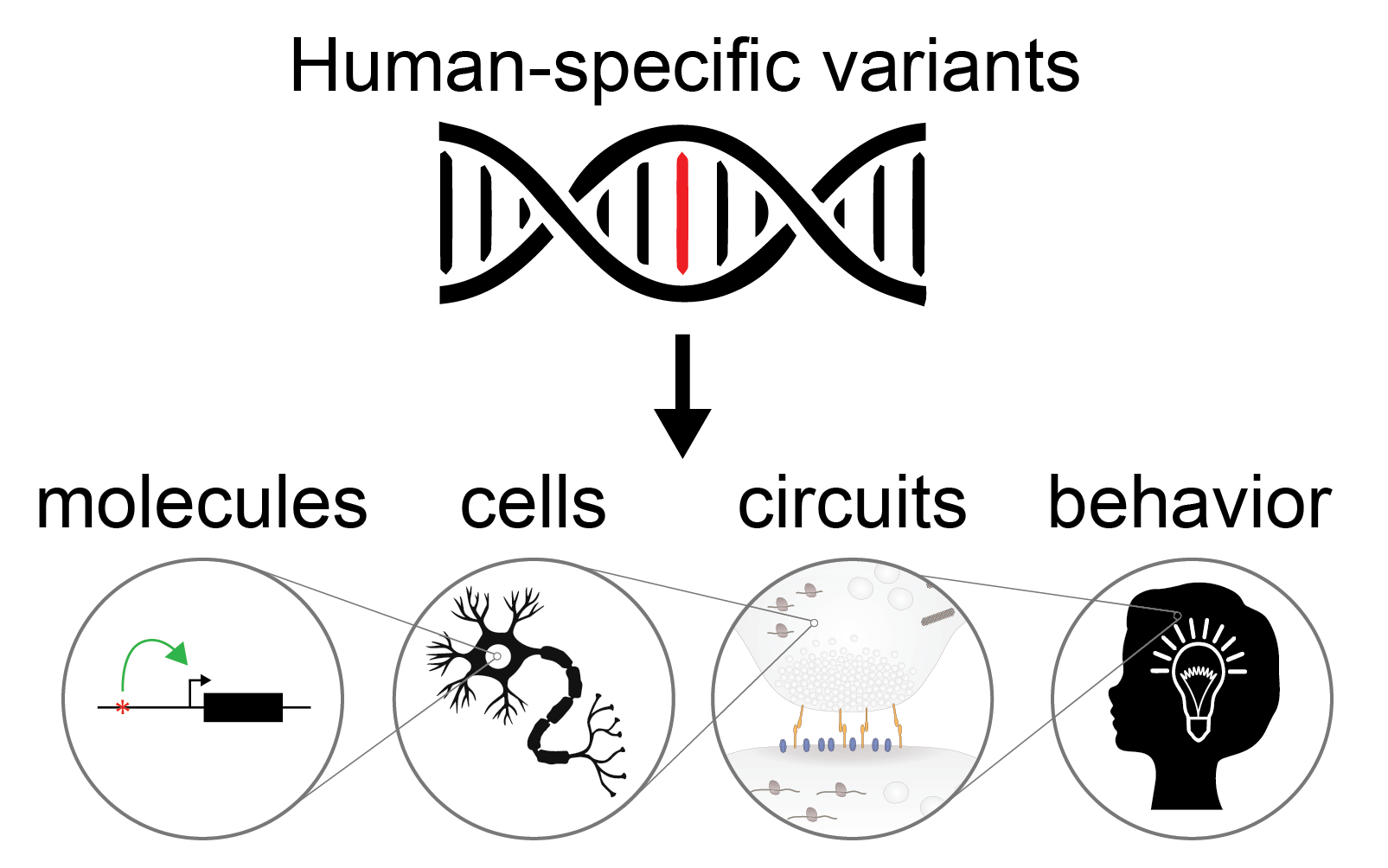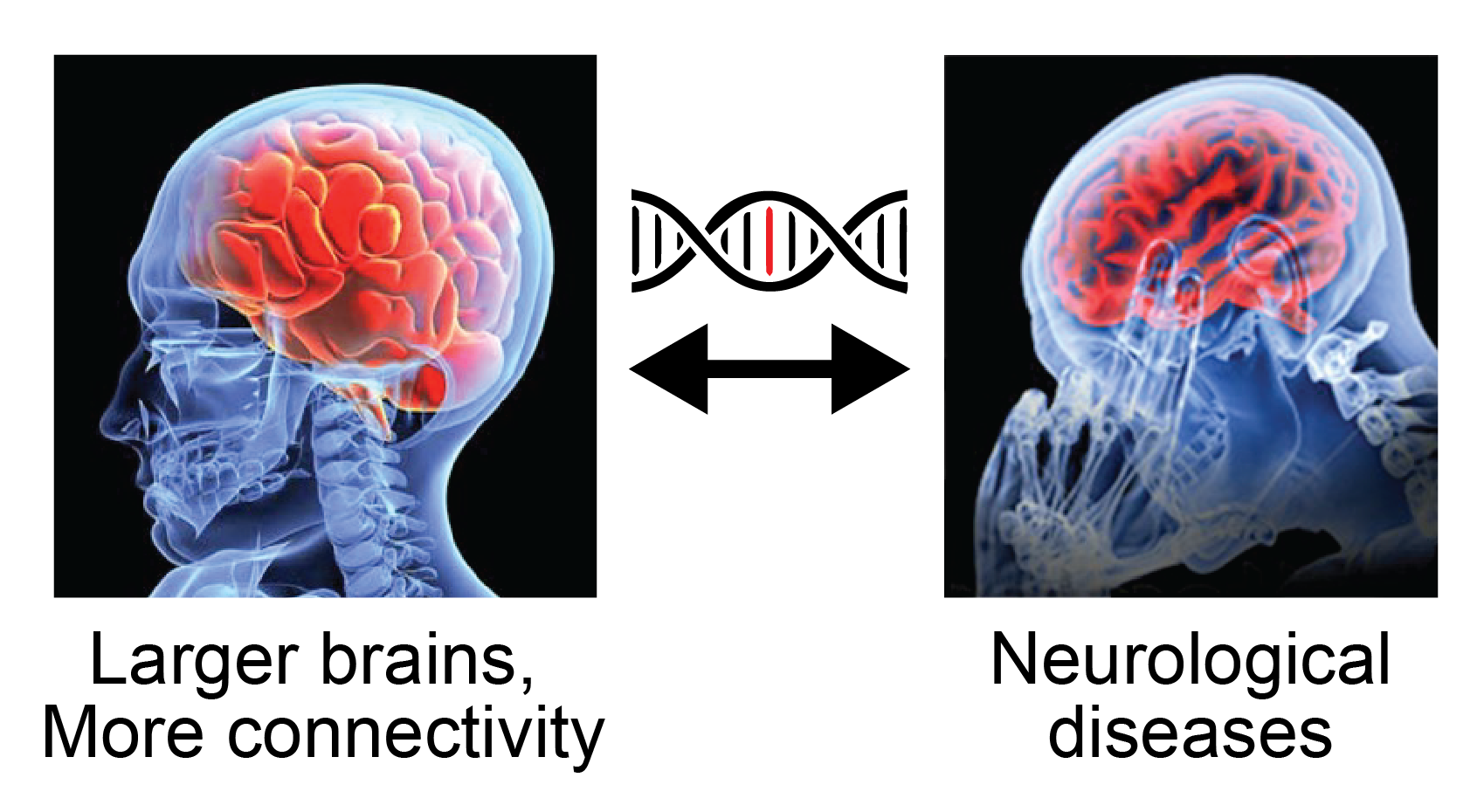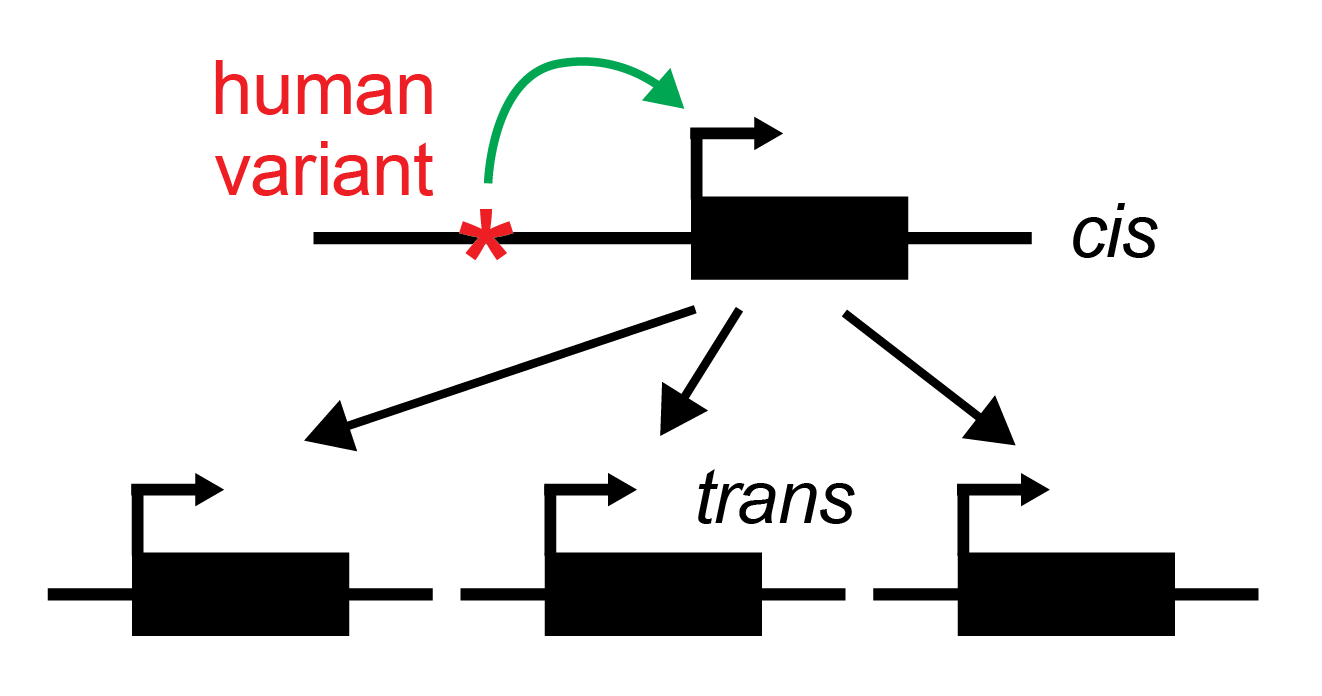How did humans evolve?
The Song lab applies a genetics and genomics lens to understand how humans evolved. In particular, we study how human-specific sequence changes result in neural specializations that ultimately impact cognition, social behavior, and motor control.
To address the following themes, we integrate a wide range of experimental and computational approaches from diverse fields, including evolutionary biology, molecular biology, neuroscience, developmental biology, anthropology, and computer science.

What genetic variants contribute to human-specific traits?
There are millions of variants between humans and chimpanzees. We use comparative methods to identify which of these changes might be functional, screen candidates using high-throughput functional genomics approaches, and recreate individual changes in primate cells and in mouse models for further study.

How does human evolution affect human disease?
Research by us and others suggests that genomic regions with signatures of selection in humans may be preferentially implicated in diseases that affect human-evolved traits like cognition and social behavior. We are interested in further exploring this connection and applying what we learn about human neural specializations to relevant diseases like autism spectrum disorder and schizophrenia.

Tool development to accelerate the study of human evolution
We have previously generated human-chimpanzee tetraploid stem cell lines as a genetic model where the genomes of both species are in the same cellular environment and different types of gene regulation can be disentangled. We are continuing to develop new ways to use this model to study human evolution. We are also developing approaches to facilitate in vivo genomic screens and training machine learning models to predict the effects of human-specific genetic variants.